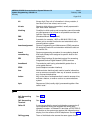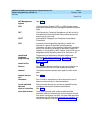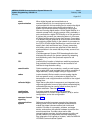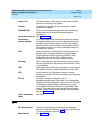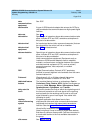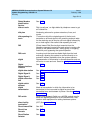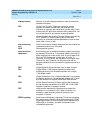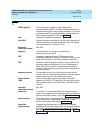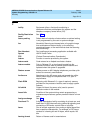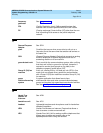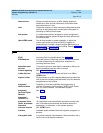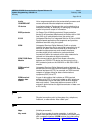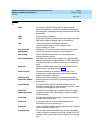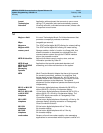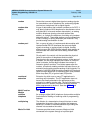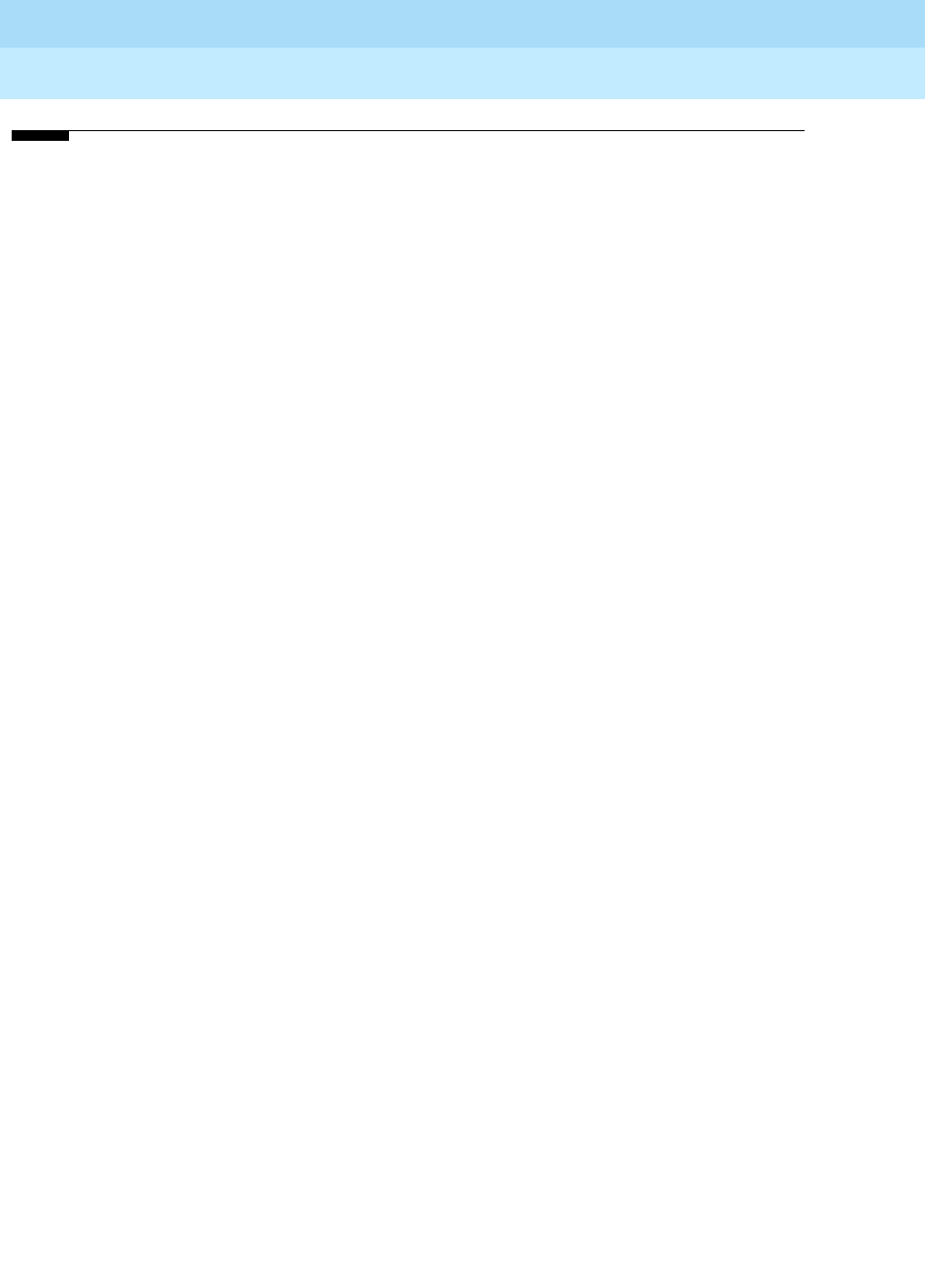
MERLIN LEGEND Communications System Release 6.0
System Programming
555-660-111
Issue 1
February 1998
Glossary
Page GL-12
E
E&M signaling Trunk supervisory signaling, used between two
communications systems, in which signaling information is
transferred through two-state voltage conditions (on the Ear
and Mouth leads) for analog applications and through two
bits
for digital applications. See also
tie trunk
.
EIA (Electronic Industries Association)
EIA-232-D Physical interface, specified by the
EIA
, that transmits and
receives asynchronous data at speeds of up to 19.2-kbps
over cable distances of 50 feet (15 m).
Electronic
Switching System
See
ESS
.
endpoint Final destination in the path of an electrical or
telecommunications signal.
ESF (extended superframe format)
PRI
framing format
consisting of individual frames of 24 eight-bit slots and one
signal bit (193 bits) in a 24-frame extended superframe.
ESS (Electronic Switching System) Class of central office (
CO
)
switching systems developed by Lucent Technologies in
which the control functions are performed principally by
electronic data processors operating under the direction of
a stored program.
expansion carrier Carrier added to the control unit
when the basic carrier
cannot house all of the required
modules. Houses a power
supply module and up to six additional modules.
ExpressRoute
1000
Data communications device that allows connection
between an RS-232
DTE
device and the control unit using
MLX extension jacks on the 008 MLX or 408 GS/LS-MLX
module.
extended
superframe format
See
ESF
.
extension An endpoint on the internal side of the communications
system. An extension can be a telephone with or without an
adjunct. Also called “station.” See also
data workstation.
extension jack An analog, digital, or
tip/ring
physical interface on a module
in the control unit for connecting a telephone or other
device to the system. Also called “station jack.”
extension
programming
Programming performed at an extension to customize
telephones for personal needs; users can program features
on buttons, set the telephone ringing pattern, and so on.
See also
centralized telephone programming
and
system
programming
.




